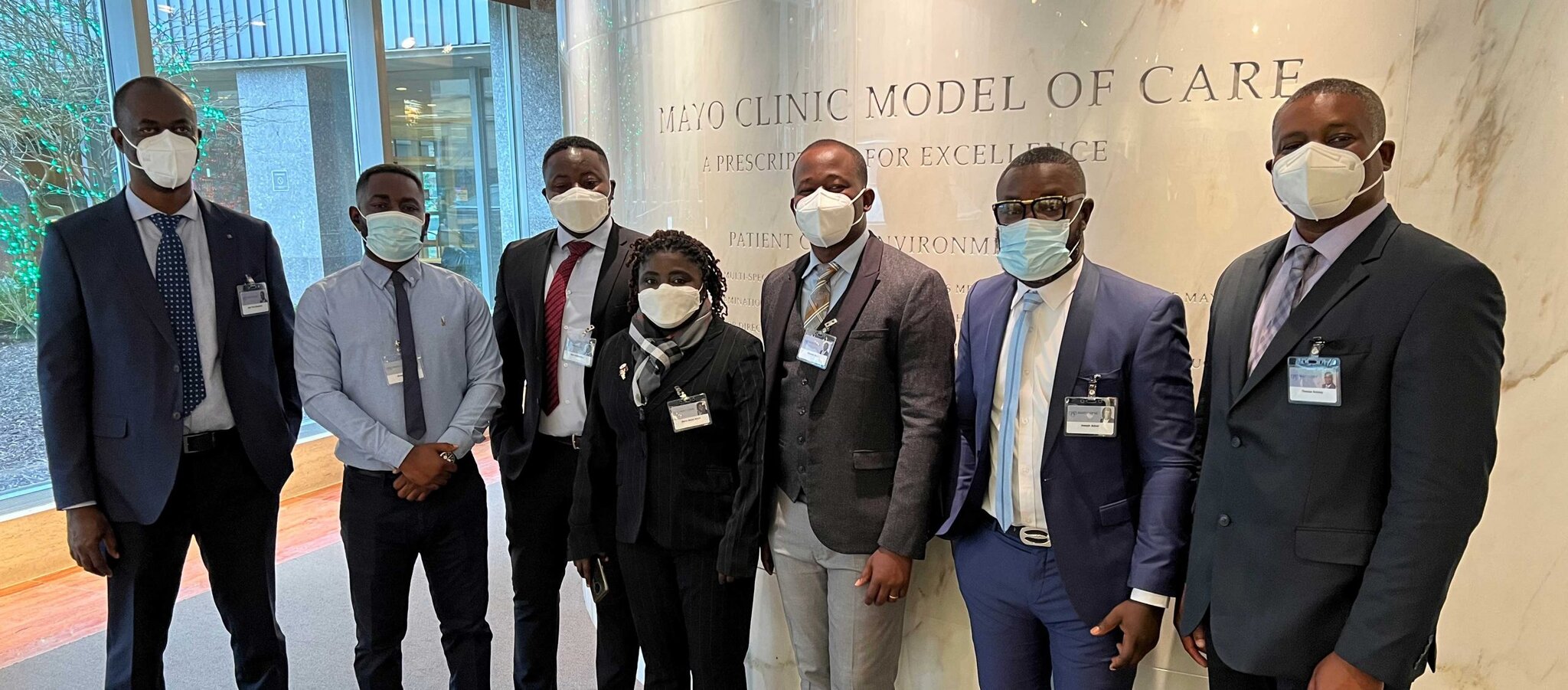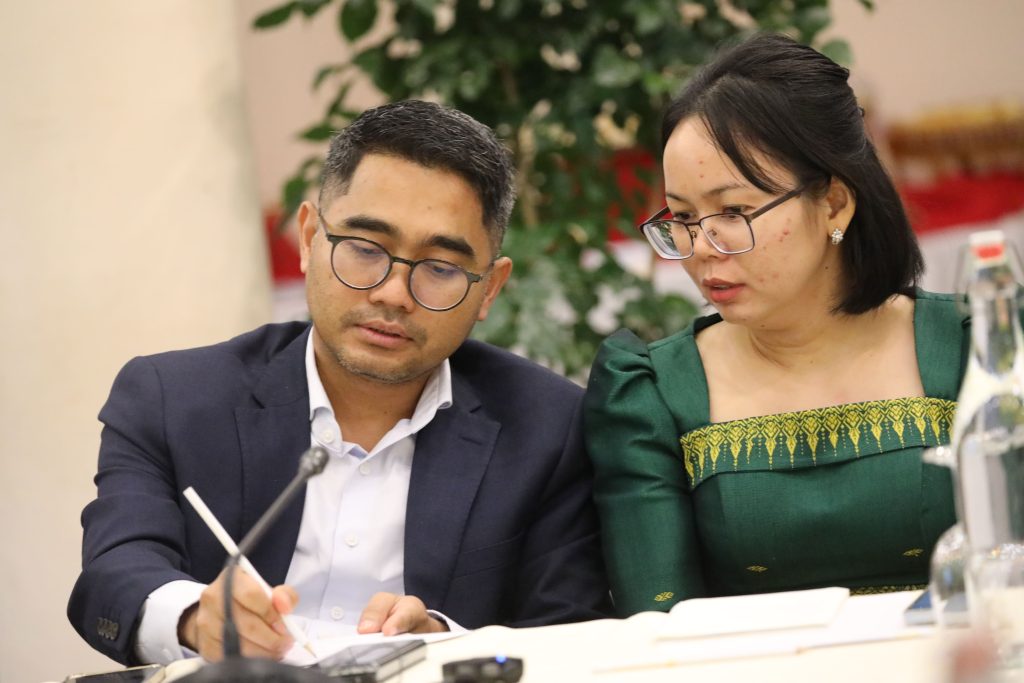
- Technical Cooperation Programme provides cancer health professionals with practical work experience and insight into best practices
- This year’s visits focus among others on a multidisciplinary approach to cancer care and developing clinical management guidelines adapted to the available resources
C/Can’s Scientific Visits: building a global cancer health care community
C/Can’s experience over the last years has shown that most projects developed through the City Engagement Process require practical assistance, which is why the organisation set up a Technical Cooperation Programme that over the course of 2021 has organised, among other activities, a series of scientific visits to leading cancer institutions around the world.
Dr Thet Ko Aung, Senior Manager for Technical Cooperation at C/Can, explains:
“Scientific Visits as part of C/Can’s Technical Cooperation Programme provide professionals with an opportunity to gain practical international work experience in different fields of cancer care and applications in their areas of expertise. Put simply, technical cooperation means sharing and transferring information, knowledge, and expertise. C/Can’s approach prioritises and leverages local knowledge and experiences rather than imposing solutions from outside without contextualization.”
In practice, this means providing technical expertise (short- and long-term technical assistance personnel or international expert consultations and twinning arrangements), and training and learning opportunities (workshops, peer exchange, scientific visits, knowledge sharing meetings, and consensus building meetings)
By the end of the year, teams from C/Can cities of Kumasi, Porto Alegre, Tbilisi and Kigali will have visited international reference centres around the world. These groups are made up of professionals from the most relevant cancer specialties: pathology, medical imaging, surgery, medical oncology, radiation oncology, as well as nursing and supporting/palliative care providers and were identified by the cities as those who could learn and share their knowledge after returning to their home countries.
C/Can’s Global Technical Lead, Dr Rolando Camacho says the goals of the visits are fourfold: to learn best practices on specific topics in the reference centre. “For example, if the output of a city project is to develop and implement a pathology laboratory quality control manual, the scientific visit would be to learn the best practice about quality control programmes.”
At the same time, these visits help create professional networks with peers in the reference centre for further collaboration and exchange of knowledge and practice, as well as setting objectives and action plans for implementation in the city.
Once back, the team will then share their new knowledge and skills with their peers at home.
So far this year, health professionals from three cities have undertaken visits:
Kumasi to the Mayo Clinic (Breast Team); Tbilisi to Hospital del Mar (Surgeon and Medical Oncology team), Catalan Institute of Oncology (Nurse team), Catalan Cancer Plan and Cancer Registries (Project Coordinator), the National Cancer Registry in Kiev, Ukraine (Cancer Registry Team); Porto Alegre to CEDAP – Centro de Diagnósticos Anátomo-Patológicos (Pathology Team).
Objectives of the Kumasi, Tbilisi and Porto Alegre visits
Kumasi
Quality of cancer care
- Learn how the multidisciplinary teams treating breast cancer from Mayo Clinic carry out their work as a team and as individual specialists.
- Share the way forward that each group has planned for the city of Kumasi, including the guidelines developed to receive feedback from their peers in Mayo Clinic.
- Initiate direct contact while establishing a networking collaboration between the specialist leading cancer care for breast in Kumasi and Mayo Clinic.
- Set up (after returning from the visit) a workshop attended by specialists (peers) from all relevant hospitals in Kumasi as well as with the relevant scientific societies, to share the knowledge from the visit to Mayo Clinic.
Porto Alegre
Pathology
- Study best practices from the reference centre on improving overall quality and standardization of procedures in all pathology departments from the city involved in cancer care.
- Create a professional network between members of the city project teams with colleagues from the reference centre for further collaboration and exchange of knowledge and practice.
- Support the setting of objectives and action planning for project implementation in the city, as well as to share the knowledge and skills from the visit with peers locally.
Tbilisi
Cancer registry
- Study best practices from the reference centre on harmonization of high-quality data collection, data synchronization, completeness and dissemination from the institutions providing cancer care to the National Center for Disease Control and Public health in Georgia.
- Create a professional network between members of the city project teams with colleagues from the reference centre for further collaboration and exchange of knowledge and practice.
- Support the setting of objectives and action planning for project implementation in the city, as well as to share the knowledge and skills from the visit with peers locally.
Quality of cancer care
- Observe how the multidisciplinary teams treating breast and cervical cancers from Hospital del Mar/ICO work as a team and as individual specialists.
- Share the way forward that each group has planned for the city of Tbilisi, including the guidelines developed to receive feedback from their peers in Hospital del Mar/ICO.
- Initiate direct contact while establishing a networking collaboration between the specialist leading cancer care for breast and cervix in Tbilisi and Hospital del Mar/ICO.
- Set up (after returning from the visit) a workshop attended by specialists (peers) from all relevant hospitals in Tbilisi as well as with the relevant scientific societies, to share the knowledge from the visit to Hospital del Mar/ICO.
Upcoming visits
Due to restrictions resulting from the pandemic some of the visits scheduled for early 2021 were delayed and will take place before the end of the year. This month will see visits from Kumasi to the African Palliative Care Association (APCA), the Mayo clinic (Cervix team).
Health professionals from Tbilisi will travel to the Policlinico S. Orsola – Malpighi, University Hospital of Bologna (Medical Imaging Team); while a team from Kigali will visit Partners in Health, Malawi (Palliative Care Team), and the Ocean Road Cancer Institute, Tanzania (Medical Oncology Team).
Spotlight: access to quality of cancer care project in Kumasi
Among the main challenges identified by the technical groups in the city of Kumasi were the lack of a multidisciplinary approach to cancer care and a lack of clinical management guidelines adapted to the available resources. As part of the project develop to that effect, local professionals participated in a scientific visit of multidisciplinary teams (MDT) and members of cervical and breast cancer from Kumasi to Mayo Clinic, Rochester
“We appreciate C/Can’s leadership and organisational capacity in facilitating visits that have been mutually beneficial, providing all parties with new learnings, experiences and connections. These have invigorated the clinical program and motivated personnel in sharing knowledge with colleagues around the world.” says Kenneth Merrell, MD., Department of Radiation Oncology, Mayo Clinic; Medical Director of Global Bridges Oncology.
During the Kumasi team’s visit, health professionals attended MDT meetings, as well as reviewing effective and critical elements in the development and expansion of MDT, including team structures, culture, leadership and context, such as organizational settings and local environments.
Dr Ishmael Kye, General Surgeon and Breast Surgeon at Komfo Anokye Teaching Hospital (KATH) in Kumasi (Ghana), explains that the Kumasi team was also involved in solving practical clinical cases as a team.
“This was facilitated by experienced staff from hosting institutions and the team helped draft training outlines to disseminate the knowledge gained and expand the number of operational MDTs locally. They also spent time in the relevant departments in the host institutions, which helped familiarize them with new techniques and technologies. These visits also promote cooperation within Kumasi’s team of specialists of Kumasi, helping to lead the expansion of this clinical approach in the city.”
Dr Kye says:
“After returning home, the Kumasi technical groups are now reinforcing the implementation of their guidelines and promoting the implementation of MDTs and the guidelines in all centres treating cervical and breast cancer patients in the city among the respective health authorities in the city. Dr Kye concludes: “The two groups (breast and cervix) are also holding a workshop with specialists from all relevant centres treating cervical and breast cancer to disseminate the guidelines and to share all knowledge accrued from the visit.”





